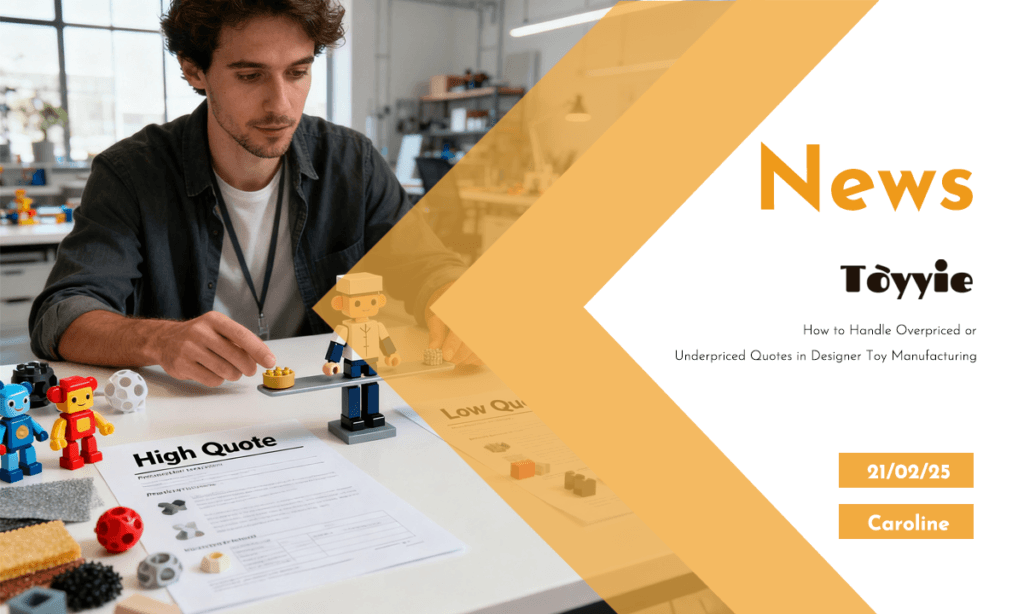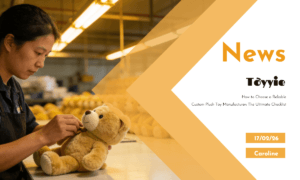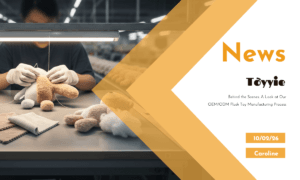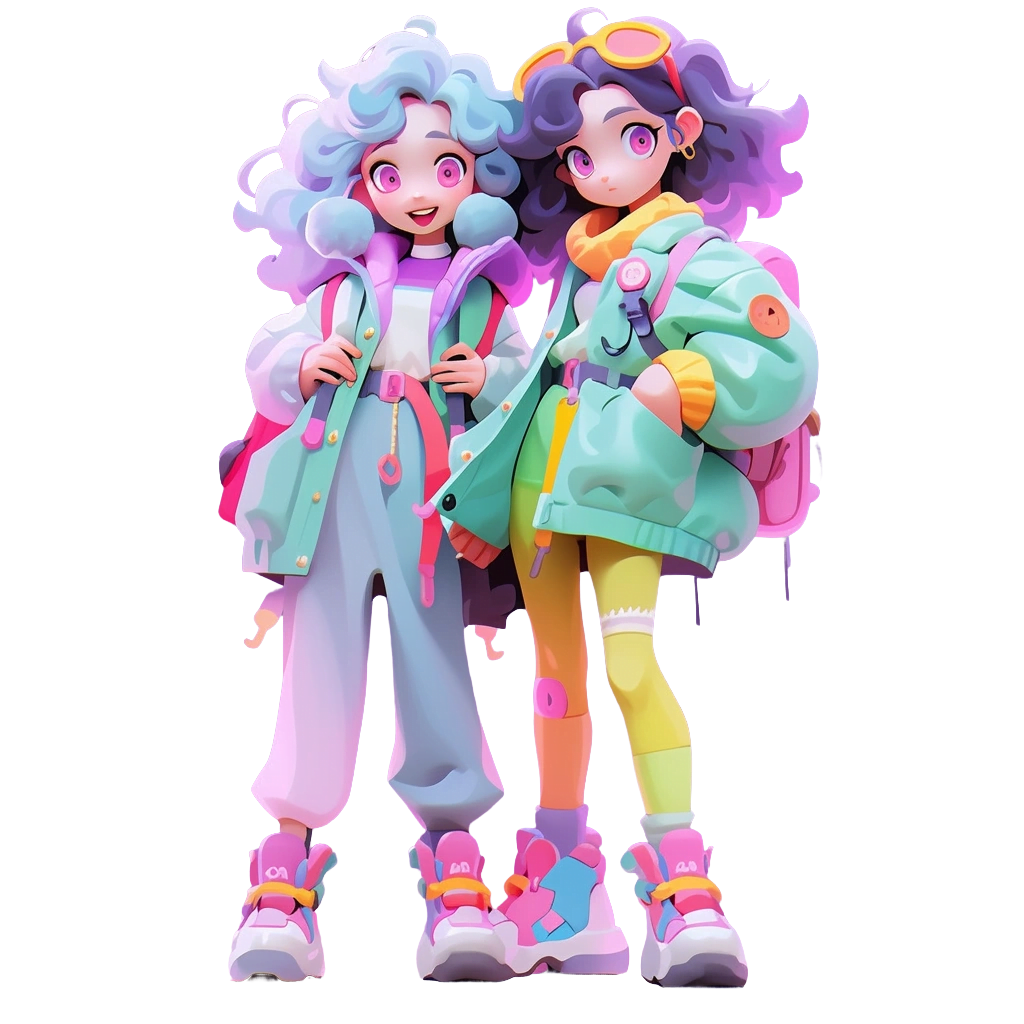📌 Introduction📌
If you’ve ever tried to bring your designer toy concept to life, you’ve likely encountered a range of price quotes from manufacturers. Some quotes may seem exorbitantly high, leaving you questioning whether your idea is financially viable. Others may come in surprisingly low, tempting you with the promise of significant savings. But how do you know if a price is justified? And more importantly, how should you respond when faced with quotes that don’t match your expectations?
As someone who has worked with countless toy designers and manufacturers, I understand the emotions that come with this process. Excitement can quickly turn to frustration or doubt when the numbers don’t align with your budget or expectations. Let’s break down the reasons behind pricing disparities, what they might mean, and how you can navigate these situations to ensure a successful project.
🧠 Understanding the Factors Behind Pricing Disparities
Before diving into how to respond, it’s essential to understand why quotes can vary so much. Manufacturing designer toys is a complex process, and pricing depends on several factors:
1️⃣ Material Choices
The material you choose—whether it’s PVC, ABS, resin, or vinyl—has a significant impact on costs. High-quality materials designed for durability or aesthetic appeal often cost more. Additionally, specialty materials like glow-in-the-dark compounds or metallic finishes further increase the price.
2️⃣ Production Scale
Quantity is a key driver of price. Producing 100 units will have a much higher cost per unit than producing 10,000. Why? Because much of the initial cost lies in mold-making and setup, which doesn’t scale down proportionally with smaller runs.
3️⃣ Design Complexity
A simple figure with minimal moving parts or a single color is cheaper to produce than a multi-jointed figure with intricate details and multiple paint applications.
4️⃣ Labor Costs
Hand-painted details, special packaging, or assembly requirements can add to the labor costs, especially if the design requires high levels of precision or care.
5️⃣ Manufacturing Location
Where your toy is produced matters. Quotes from factories in countries with higher labor costs or stricter environmental regulations will often be higher than those from regions where production is cheaper.
📈 When the Quote Feels Too High
1️⃣ Step Back and Assess
When you receive a quote that feels excessive, your first reaction might be to push back or look elsewhere. Instead, take a moment to assess the breakdown of the costs. Does the quote provide detailed reasoning? If not, ask for an itemized breakdown. This will help you understand where the costs are coming from and whether they’re justified.
2️⃣ Evaluate the Factory’s Reputation
Factories that consistently deliver high-quality products often charge more because their processes, materials, and labor standards are of a higher caliber. While it’s tempting to go for a cheaper option, cutting corners can lead to costly issues down the line, such as defective products, delays, or reputational damage to your brand.
3️⃣ Identify Priorities
Not every feature or material in your design may be essential. If the quote is too high, talk to the manufacturer about possible adjustments. For example:
– Could you use a simpler paint scheme?
– Would reducing the number of moving parts help?
– Are there alternative materials that might lower costs without compromising quality too much?
4️⃣ Don’t Be Afraid to Negotiate
Manufacturers are often willing to work with you to find a middle ground. Be clear about your budget constraints and see if they can suggest ways to reduce costs.
📉 When the Quote Feels Too Low
A low quote might seem like a dream come true, but it’s often a red flag. Here’s why:
1️⃣ Risk of Poor Quality
Low quotes might mean the manufacturer is cutting corners on materials, quality control, or labor. This can result in toys that don’t meet your standards—or worse, products that fall apart or fail safety tests.
2️⃣ Hidden Costs
Some manufacturers offer low quotes upfront but add hidden fees later in the process. These might include unexpected charges for mold adjustments, prototyping, or assembly.
3️⃣ Production Delays
A factory that offers an unrealistically low quote may lack the resources or experience to deliver on time. They might take on more projects than they can handle, leading to delays.
4️⃣ Limited Communication
Manufacturers with low quotes might not invest in strong client relationships or clear communication, which are crucial for a smooth production process.
🚩 How to Respond to a Low Quote
1️⃣ Ask for References
If a factory offers a price that seems too good to be true, ask for references or examples of their previous work. Reach out to past clients to hear about their experiences.
2️⃣ Request Details
Ask the manufacturer for a breakdown of the costs to understand how they’re keeping the price so low. Are they using lower-grade materials? Skipping steps in quality control?
3️⃣ Look for Certifications
Check if the factory adheres to industry standards and certifications. A reputable manufacturer will have no issue providing proof of compliance with safety and quality standards.
4️⃣ Trust Your Instincts
If something feels off, it’s better to walk away. The savings from a low quote can quickly evaporate if you end up with defective products or missed deadlines.
⚖️ Finding the Balance
So, how do you find a manufacturer that fits your budget while delivering quality?
1️⃣ Do Your Research
Spend time researching potential manufacturers and getting multiple quotes. Don’t just focus on the price—consider the factory’s reputation, communication style, and ability to handle your specific needs.
2️⃣ Be Transparent
Share your budget and expectations upfront. Many manufacturers appreciate clear communication and will work with you to find a solution.
3️⃣ Focus on Long-Term Relationships
Building a relationship with a trusted manufacturer is invaluable. While the first project might require compromises, a long-term partnership can lead to better pricing and collaboration on future projects.
📚 Case Studies: Lessons Learned
1️⃣ The High Quote That Saved a Project
One designer nearly walked away from a project because the quote seemed too high. After discussing the breakdown with the manufacturer, they realized the high cost was due to premium materials and a robust quality control process. The investment paid off when their toy received rave reviews for its durability and finish.
2️⃣ The Low Quote That Backfired
Another client chose the cheapest manufacturer they could find. While the upfront savings were significant, the final products arrived with numerous defects, forcing the client to redo the entire production run with a different factory—doubling their costs.
💡 Conclusion: Make Informed Decisions
Handling quotes in the designer toy industry is as much about understanding the production process as it is about negotiating prices. By knowing what goes into manufacturing and being open to discussions with your factory, you can make informed decisions that balance cost and quality.
Remember, the goal isn’t just to get the cheapest or most expensive quote—it’s to find a manufacturer who can bring your vision to life while respecting your budget.
If you’re currently evaluating quotes or need advice on navigating the production process, feel free to reach out. We’re here to help make your toy a reality!









